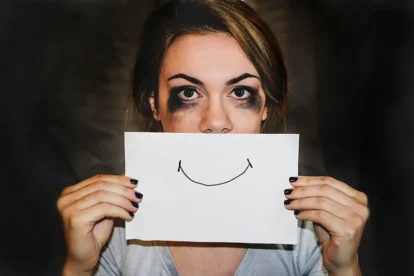
Benzodiazepine Addiction Treatment
Benzodiazepine addiction occurs when someone becomes physically dependent on one or more of these depressant medications typically prescribed to treat anxiety disorders. Dependence on benzodiazepines can cause a number of symptoms, but can also be life-threatening if an overdose occurs. Treatment for benzodiazepine addiction includes detox, therapy, residential stays, support, and self-care to manage the addiction and avoid relapses.
What Is Benzodiazepine Addiction?
Benzodiazepine addiction is a physical dependence on any of the prescription drugs in this class of depressants. Benzodiazepines are habit-forming, and addiction can occur in someone using the drug as directed, although this is uncommon. More common is addiction in people who misuse benzodiazepines, by using them when not prescribed or taking larger doses and more doses than is recommended.
Dependence on benzodiazepines causes symptoms and general life impairment, but it can also be dangerous and life-threatening. An overdose can be deadly, especially when benzodiazepines are combined with other depressants like alcohol. Addiction can be successfully treated and managed, beginning with controlled detox, residential treatment, therapy, support, and ongoing treatment and self-care.
Benzodiazepine Facts and Statistics
Benzodiazepines are prescription medications that are depressants, meaning they decrease the activity of the central nervous system and cause sedation, sleepiness, and relaxation. They are prescribed to treat anxiety disorders, including panic disorders, as muscle relaxants, and prevent seizures. These drugs are habit-forming, and people may abuse them to get a sense of euphoria, relaxation, and to self-medicate to get relief from anxiety.
- Examples of commonly prescribed benzodiazepines are alprazolam (Xanax), diazepam (Valium), and lorazepam (Ativan).
- Benzodiazepines are Schedule IV controlled substances.
- Benzodiazepine use increases with age and is more prevalent in women.
- Combining opioids with benzodiazepines is extremely dangerous. About one-third of opioid overdoses have occurred in people who were also using benzodiazepines.
- In 2016, the Centers for Disease Control and Prevention recommended that doctors do not prescribe patients both opioids and benzodiazepines at the same time.
- Flunitrazepam (Rohypnol) is a benzodiazepine known commonly as “roofies” and that has gained notoriety for being used for sexual assault or as a date rape drug.
- Benzodiazepine addiction statistics show that overdose deaths involving these drugs have been increasing since 2002. Most of these were combinations with opioids.
- Xanax is the most commonly abused benzodiazepine by teens. In recent years, abuse of these drugs has decreased among eighth-graders but has increased slightly among tenth and twelfth graders.
Effective World-Class Treatment for Benzo Addiction at Alta Mira
Treatment for benzodiazepine addiction at Alta Mira begins with detox, where our world-class clinical staff provides 24/7 medically-supervised care during the difficult withdrawal process from Benzodiazepines.
In addition to one-on-one behavioral therapies, patients can benefit from group and family therapy, support groups, and alternative therapies and relaxation techniques, like art therapy, yoga, and meditation. Also important in treatment is learning how to prevent relapses. Relapse is common in addiction, but taking steps to prevent them can minimize the damage.
The outlook is generally good for someone seeking treatment for benzodiazepine addiction. The chances of success can be increased by learning and using good relapse prevention strategies, such as recognizing and avoiding triggers, avoiding drug-using friends, finding alternative ways to regulate emotions, and finding and relying on a strong social support network. When all of these are put in place along with good residential treatment, a patient addicted to benzodiazepines can make positive changes and learn how to remain sober and happy.
Signs and Symptoms of Benzodiazepine Addiction
Symptoms of benzodiazepine addiction include those that are characteristic of other types of addiction. Someone with benzodiazepine dependence will use the drug often and in increasingly larger doses as they develop a tolerance. They may try to stop using or limit their use of the drug but without success. They will always be thinking about and trying to get the next dose. This addiction also causes withdrawal when a person tries to stop using it.
There are also noticeable signs of abuse of benzodiazepines, including drowsiness, confusion, impaired thinking, lethargy, poor coordination, and slurred speech. As depressants, these drugs cause effects similar to alcohol. Someone abusing benzodiazepines may seem intoxicated: more outwardly gregarious and cheerful, but then stumbling, slurring their words, and confused with higher doses. Signs of using higher doses of benzos and long term effects of this abuse include:
- Impaired reflexes
- Slowed breathing
- Nausea and vomiting
- Abdominal pain, diarrhea, or constipation
- Loss of appetite
- Mood swings
- Irrational and angry outbursts
- Euphoria
- Difficulty remembering things
- Impaired judgment
- Disorientation
Begin Your Recovery Journey Today
866-922-1350Causes and Risk Factors of Benzo Addiction
Benzodiazepine dependence is caused by abuse of one or more of these drugs, although it is possible to become dependent even with prescribed use. The longer the drug is used or abused and the greater the dosage used, the more likely a person is to become addicted. Abusing a benzodiazepine puts a person at a greater risk for addiction than someone who is using it as directed. Short-acting benzodiazepines are more likely to cause dependence, because they trigger more withdrawal, which in turn can lead to greater abuse of the drug to get relief from those symptoms.
While use and abuse of benzodiazepines are the potential causes of addiction, there are also several risk factors for both abusing these drugs and becoming dependent on them. Family history and a genetic propensity for addiction can be a contributing factor, for example. Being a woman is an important risk factor too, as women are by far more likely to be prescribed benzodiazepines. Other risk factors include having other substance abuse problems or addictions, having a mental illness, lower socioeconomic status, being around other people who abuse benzodiazepines, being unemployed, engaging in risky and impulsive behaviors, and experiencing trauma or abuse when younger.
Knowing When It's Time for Benzo Addiction Treatment
Getting help for benzodiazepine addiction is vital. But making that first step toward this important and potentially life-transforming move can be challenging for anyone who has tried to manage addiction to benzos on their own. Residential treatment for benzo addiction is most effective because it allows an individual to focus on treatment for an extended period of time while learning the necessary skills for returning home and avoiding a relapse. Benzodiazepine addiction treatment is tailored to each individual and typically includes:
- Detox
- One-on-one behavioral therapy
- Group therapy and peer support
- Educational programs
- Family therapy
- Experiential and holistic therapies
- Intensive workshops
- Fitness/recreation
- Relaxation strategies and stress management
- Learning how to avoid relapses
Relapse prevention is an important part of treatment and includes learning what triggers benzo use, how to avoid triggers, lifestyle changes, and learning and using healthy coping strategies.
We understand that in order for rehab to be successful, we must listen closely and truly understand your needs, aspirations, personal history, and treatment goals. All members of our care team align closely with you so that you feel safe, respected, and ready to do your work. With this approach, Alta Mira co-creates a profound healing experience with you so you can achieve your recovery goals and reclaim your life.
How to Help a Loved One Get Treatment for Abusing Benzos
Addiction to benzodiazepines is not a choice nor a sign of weakness. It is a condition of the brain that can respond to targeted treatment. When your loved one comes to Alta Mira, they will finally have a chance to be free from the debilitating effects of benzo addiction.
While you can have an influence on your loved one’s decision to seek treatment, an individual struggling with benzodiazepine addiction must take ultimate responsibility for their own recovery. Your support and encouragement may be what will finally convince them to seek help for their struggles with benzos.
- The Challenge. Helping a loved one who is struggling with benzos can be a long and heartbreaking journey. It can be hard to help someone, particularly if they don’t want help or if they live far away. Many families wait years beyond the time that they first thought about intervening.
- Get Help for Yourself. If you have a loved one who is suffering from benzo addiction, one of the first things you can do is take care of yourself by attending peer support meetings like Nar-Anon.
- Consider an Interventionist. The longer you wait for someone to “hit bottom,” the more their disease advances. You can actually increase the chance of a successful outcome by intervening with your loved one before their disease progresses to a more dangerous level. However, organizing your family to set limits and boundaries to get a loved one into rehab can be challenging.
Hiring a professional interventionist can help the family get organized as a team, prepare to speak to the addict in a coordinated way, to give your loved one the best possible chance of successfully arriving in treatment. Interventionists can also be helpful during and after the treatment experience, providing support and coaching to the family to ensure that the patient completes treatment. If you are considering an intervention, our admissions team can also help you with this process.
How Our Luxury Benzo Addiction Rehab Center Transforms Lives
Residential treatment for benzodiazepine addiction is the best option for you or your loved one. Our luxury benzo rehab is designed for a safe detox and successful recovery from addiction. During treatment, we’ll provide you with an array of tools to guide your benzo recovery, such as a personalized treatment plan, holistic and alternative therapies, group therapy, family therapy, life skills training, and help with exercise and nutrition. During your stay at Alta Mira, you’ll have an individualized treatment plan tailored to your specific needs. This will include comprehensive services for any co-occurring conditions that might be complicating or supporting your benzo addiction.
Our Transformational Benzodiazepine Addiction Treatment Program
Your first 30 days of treatment at Alta Mira is referred to as your Detox, Stabilization, Assessment period, which begins with private, medically supervised detox. During this time, our detox specialists will keep you safe and secure, monitored 24/7, as you rest in the privacy of your own room.
You can also expect:
- Weekly meetings with a psychiatrist
- Weekly meetings with a medical doctor
- Neuropsychological testing and advanced psychological testing
- Orientation to our recovery fundamentals and self-regulation skills development
- In-depth family engagement and the option for loved ones to attend multiple 3-day family programs
- Introduction to therapy groups
Following 30 days of stabilization, clients move on to the next phase of their recovery process at Alta Mira, which we call our Transformational Program. Key elements of our complete 90-day transformational benzo rehab program include:
- Three individual intensive psychotherapy sessions per week
- Weekly meetings with a medical doctor
- Participation in advanced workshops to support introspection, foundational change toward recovery, and relapse prevention
- Expanded neuropsychological assessment and continued weekly psychiatrist meetings inform tailored treatment adjustments and a refined individualized clinical approach
- Practice and integration of recovery principles and self-regulation skills and continued family work to support improved individual outcomes
- Intensive Workshops
The Courage to Change
Lasting change takes time. It can take six weeks to change a simple habit. Changing behavior following benzo addiction can be very challenging. Learning how to develop clean and sober behaviors, effectively deal with triggers and stressors, take medication as prescribed, and make healthy lifestyle changes to support long-term recovery can take time.
Better Benzo Addiction Treatment Outcomes
Our 90-day program provides the structure, support, and time to learn a new way of living to give clients the best possible outcome. Studies show that individuals should participate in benzo treatment for at least 90 days to see the best results. However, the best indicator of success is not the duration of the program, but the mutual cooperation between the recovering addict and the treatment center, as they plan for continuing care after finishing the program.
Working Together
We understand that in order for treatment to be successful, we must listen closely and truly understand your needs, aspirations, personal history, and treatment goals. All members of our care team align closely with you so that you feel safe, respected, and ready to do your work. With this approach, Alta Mira co-creates a profound healing experience with you so you can achieve your recovery goals and reclaim your life.
Reclaim Your Life at Our Private Benzodiazepine Addiction Treatment Center Today
We believe individuals are best able to focus on their recovery when immersed in a secure, serene, healing setting. That’s why we provide comfortable surroundings while maintaining the most advanced and sophisticated benzo rehab program in Northern California. Clients can expect compassionate care from our best-in-class benzodiazepine addiction specialists.
Seeking a helping hand to guide you through these difficult times is not an easy decision. Our caring and experienced team at Alta Mira can help guide you through the next steps toward achieving lasting recovery.
Don’t let benzos control your life. To begin your life-changing transformation, contact us today.
Benzo Addiction FAQs
Signs of an overdose on benzodiazepines should be taken very seriously. They include extreme drowsiness and confusion, serious loss of coordination or ability to move the body, and loss of consciousness. When combined with other depressants, the risk of overdose is significantly increased. For this reason, it is very dangerous to combine benzodiazepines with alcohol, opioids, or any other depressant substance. The combined effects of two or more depressants can cause extreme sedation, slowed or stopped breathing, and even coma and death.
Dependence on any substance causes withdrawal symptoms when the use of the drug is stopped. Benzodiazepine withdrawal syndrome causes characteristic symptoms:
- An increase in anxiety and tension
- Panic attacks
- Tremors in the hands
- Difficulty sleeping
- Irritability
- Difficulty concentrating
- Sweating
- Nausea and dry heaving
- Heart palpitations
- Muscle pain and stiffness
- Headaches
- Weight loss
The most severe addictions to benzodiazepines may cause psychotic symptoms and seizures. Even patients using benzodiazepines under a doctor’s guidance may experience some withdrawal when no longer using the drug. Most commonly this causes mild to moderate anxiety and insomnia. In some cases, a person using these drugs to treat anxiety will experience a long-term return of anxiety after stopping use. They may also experience protracted depression, insomnia, and other symptoms.
Detoxification is an important step in recovering from an addiction, but it will also trigger withdrawal symptoms. These symptoms may be severe and potentially dangerous, so detox should never occur without medical supervision. A medical team can help a patient minimize withdrawal symptoms and the likelihood of relapse.






